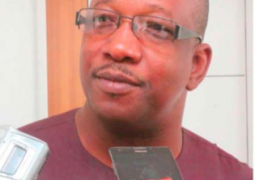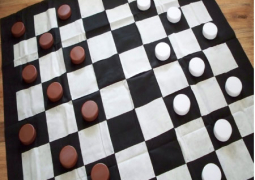World Literacy Day was recently celebrated in Mansakonko in the Lower River Region with a procession by school children, literacy providers, women, and cultural groups.
The celebration, held on 18 September, was marked by a splendid display of talents by literate adults and literacy providers in different types of creations, such as drama, poems, reading and writing, tie and dye, batik, soap-making, new farming techniques, and variety of nutritious foods.
Speaking to reporters on the occasion, Kebba Nyagado, Senior Education Officer of Adult and Non-formal Education Unit at the Ministry of Basic and Secondary Education, said September 8 is marked internationally as literacy day.
Mr Nyagado said The Gambia has already observed the day but the organizers decided to postpone the activities for the occasion in Mansakonko due to the Koriteh programmes.
Each year, on the eve of the celebration, the Minister of Basic and Secondary Education delivers a speech on the importance of the day.
Mr Nyagado added that the celebration is done at regional levels on rotational basis thus the reason it was done in Mansakonko this year. The occasion, he also said, is hosted every year by a literacy provider (NGO/CBO) operating within that particular region.
The celebration is meant to sensitise the public on the importance of literacy, "particularly the population bracket that has no opportunity for formal education".
"It is also meant to allow people who are enrolled in the literacy classes to be able to demonstrate the knowledge and skills acquired in the classes, such as reading and writing, life and livelihood skills," the senior education officer said."The occasion is also used to encourage people to enroll in literacy classes and to promote the empowerment of women."
The Director of National Women Farmers Association (NAWFA), Njaga Jawo, thanked all those who joined them in marking the day, saying NAWFA, the main host of the event, is the biggest service provider to the non-formal education sector in region 4 with 48,000 members of whom 99% are illiterates.
"This is why we are involved in the non-formal education system," he said, adding that their activism, performance and contribution in progressive programmes have brought a lot of changes and progress in the lives of women farmers in the country."
"They know now how to read and write, how to apply their fertilizers, how to use calculators, time, and mobiles to communicate without depending on anyone. All this is due to the literacy programme," he said. "NAWFA did not impose on women what to do but rather asked them what they want."
Mr Jawo called on the public to support the course of the non-formal education sector to meet the Millennium Development Goals before 2015.
Present at the event were LRR deputy governor Wally Sanneh, Chief Yahya Jarjusey of Jarra West and the Regional Education Director for the Region.



